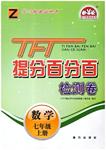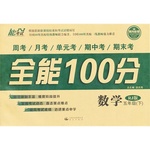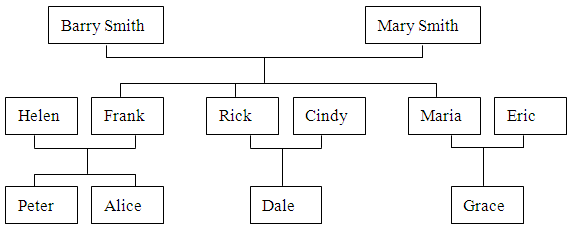题目内容
Jack is my new classmate. He lived in a small village for fifteen years. His father, Mr. Brown, was a rich farmer. Last year his father opened a shop in our town and last month he bought a big house and Jack began to study in our class. But Jack had few friends here. At first he often played by himself. Jack’s neighbor Daisy is a kind girl. She found Jack never talked with anybody and decided to help him. Jack likes to stay with Daisy and talks to her a lot. Now they’re good friends. This morning, Daisy said to Jack, “It’ll be my sixteenth birthday tomorrow. I’ll have a birthday party. Will you please come?”“ Certainly!” Jack said happily. Jack got home and thought of a present for Daisy. But he forgot to ask Daisy what she liked. He couldn’t call her because he didn’t know her telephone number. At that moment Mrs. Brown came and asked, “What’s the matter, dear?” “What would you like if it was your sixteenth birthday, Mommy?” “Nothing,” Mrs. Brown said. “I just wish I was 16.”
小题1:Jack’s father is a now.
A. shopkeeper B. doctor C. farmer
小题2:Jack lives in a now.
A. city B. town C. small village
小题3:Jack will go to his birthday party.
A. mother’s B. father’s C. friend’s
小题4:Jack didn’t know .
A. what Daisy looked like B. Daisy’s telephone number
C. the way to Daisy’s house
小题5:Jack’s mother wanted .
A. some flowers B. a friend C. to be young
小题1:Jack’s father is a now.
A. shopkeeper B. doctor C. farmer
小题2:Jack lives in a now.
A. city B. town C. small village
小题3:Jack will go to his birthday party.
A. mother’s B. father’s C. friend’s
小题4:Jack didn’t know .
A. what Daisy looked like B. Daisy’s telephone number
C. the way to Daisy’s house
小题5:Jack’s mother wanted .
A. some flowers B. a friend C. to be young
小题1:A
小题2:B
小题3:C
小题4:B
小题5:C
试题分析:这篇短文讲述的是Jack从农村搬到了镇里上学,开始他没有朋友,后来他跟Daisy成为了朋友。Daisy要过生日了,Jack不知道该送给她什么礼物,就问他妈妈,如果你16岁了,你想要什么礼物。他妈妈回答说我只希望我真的16岁了。
小题1:细节理解题。根据短文中Last year his father opened a shop in our town可知,Jack的父亲在我们镇里开了一个商店,所以Jack的父亲现在应该是一个店主。故选A,shopkeeper 店主。
小题2:细节理解题。根据短文中Last year his father opened a shop in our town and last month he bought a big house and Jack began to study in our class可知,Jack 的父亲在镇里开了一个商店,还买了一个大房子,Jack也来到我们班里学习,故由此我们可以推测,Jack现在是住在镇里面。故选B。
小题3:细节理解题。根据短文中Daisy said to Jack, “It’ll be my sixteenth birthday tomorrow. I’ll have a birthday party. Will you please come?”“ Certainly!” Jack said happily.可知,是Jack的好朋友Daisy要过生日了,她邀请Jack来参加她的生日晚会。故应选C。
小题4:细节理解题。根据短文中He couldn’t call her because he didn’t know her telephone number.可知,Jack想去参加Daisy的生日晚会,但是他不知道该买什么礼物,不知道Daisy喜欢什么,一也不知道她的电话号码。故B选项是正确的。A选项意为:她看起来什么样子。这里的like 不是喜欢,是介词,意思是像。
小题5:细节理解题。根据短文的最后Mrs. Brown said. “I just wish I was 16,Mrs. Brown 说,我只是希望我16岁了。由此我们可以知道,Jack的妈妈希望自己16岁了,想要变得年轻。故选C。

练习册系列答案
 提分百分百检测卷系列答案
提分百分百检测卷系列答案 宝贝计划期末冲刺夺100分系列答案
宝贝计划期末冲刺夺100分系列答案 能考试全能100分系列答案
能考试全能100分系列答案
相关题目
